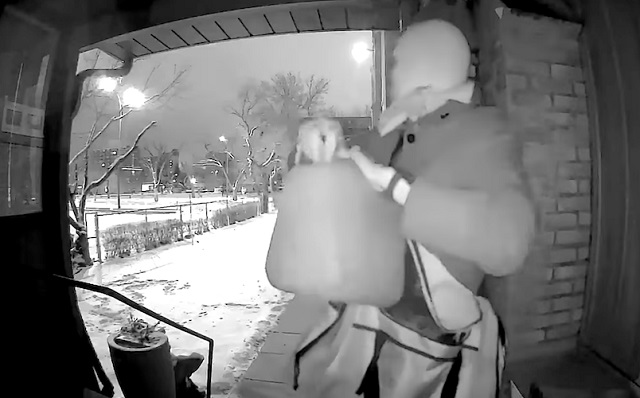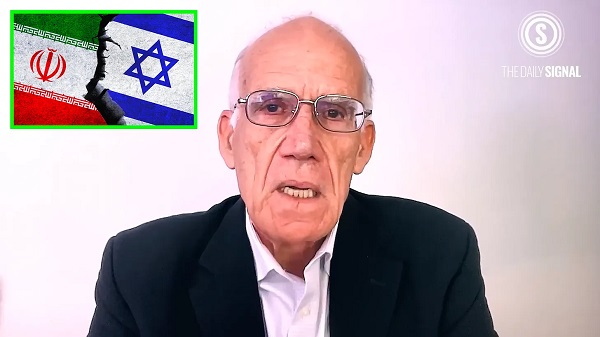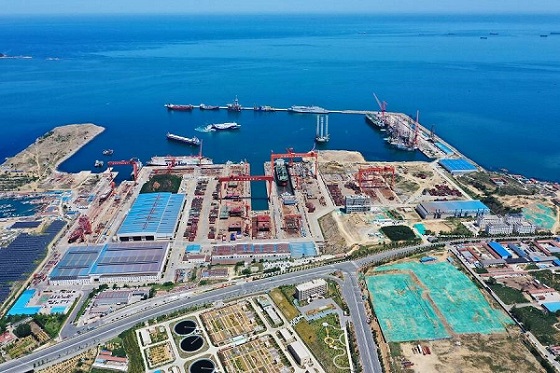Crime
Canadian receives one-year jail sentence, lifetime firearms ban for setting church on fire

From LifeSiteNews
Jordan Willet was convicted of starting a blaze in February at Blessed Sacrament Parish in Regina, Saskatchewan.
A man who was charged with arson after trying to burn down a historic Catholic church earlier this year was handed only a one-year jail sentence for his crime but has also been banned from being able to possess firearms for life.
On April 9, a court sentenced Jordan Willet, 31, to 278 days in jail for intentionally or recklessly causing damage by fire or explosion to property and for not complying with a probation order. In February, LifeSiteNews reported that Willet had been arrested and charged with starting a fire at Blessed Sacrament Parish in Regina, Saskatchewan, on February 9.
He pleaded guilty to both charges and also received an 18-month probation sentence along with a lifetime firearm prohibition.
Over the weekend, Fr. James Hentges, the parish pastor, said he was “relieved he is in custody and is not a threat.”
The parish had posted footage of the February 9 attack on social media and put out a plea for anyone who had information on the event to report it to police.
The video footage of the attack, taken from a doorbell camera, shows Willet, in a mask, pouring fuel on the church before setting it on fire.
Fire investigators determined that the blaze was caused by a direct act of arson.
Since the spring of 2021, more than 100 churches, most of them Catholic, have been burned or vandalized across Canada. The attacks on the churches came shortly after the unconfirmed discovery of “unmarked graves” at now-closed residential schools once run by the Church in parts of the country.
In 2021 and 2022, the mainstream media ran with inflammatory and dubious claims that hundreds of children were buried and disregarded by Catholic priests and nuns who ran some of the schools.
Despite the church burnings, the federal government under Prime Minister Justin Trudeau has done nothing substantial to bring those responsible to justice or to stem the root cause of the burnings.
The claims, which were promoted by Trudeau among others, lack any physical evidence and were based solely on soil disturbances found via ground-penetrating radar.
In fact, in August 2023, one such site underwent a four-week excavation and yielded no remains.
Despite the lack of evidence, the Canadian Broadcasting Corporation (CBC) and others have continued to push the narrative, even running a report recently that appeared to justify the dozens of attacks against Catholic churches.
In January, Conservative Party leader Pierre Poilievre not only condemned the rash of church burnings in Canada but called out Trudeau for being silent on the matter.
Crime
UK finally admits clear evidence linking Pakistanis and child grooming gangs

Quick Hit:
After years of denial and political cover-ups, the UK government has formally acknowledged a disturbing link between Pakistani-heritage men and child grooming gangs. A scathing new review has prompted Prime Minister Keir Starmer to reverse course and launch a full national inquiry into the widespread abuse.
Key Details:
- The Casey Review found “clear evidence” of Pakistani men’s overrepresentation in grooming gangs and accused authorities of ignoring the abuse to avoid accusations of racism.
- Home Secretary Yvette Cooper confirmed over 800 historic child sex abuse cases will be reopened and prosecuted where possible.
- The Labour Party and Prime Minister Starmer were previously opposed to a national inquiry, with critics calling this reversal a politically motivated “smokescreen.”
Diving Deeper:
The British government has finally acknowledged a link between Pakistani-heritage men and the grooming gang epidemic that has plagued communities across England for decades. The admission comes following the release of a damning public review led by Baroness Louise Casey, which uncovered years of institutional failure, racial sensitivity, and political cowardice.
Home Secretary Yvette Cooper presented the findings in Parliament, confirming that the Casey Review had “identified clear evidence of over-representation among suspects of Asian and Pakistani-heritage men.” She condemned the systematic rape of vulnerable girls—some as young as 10—and the authorities’ “unforgivable” failure to act.
“The sexual exploitation of children by grooming gangs is one of the most horrific crimes,” Cooper said, noting that too many warnings had been ignored over the last 15 years. She announced that the government would adopt all of Baroness Casey’s recommendations and reopen more than 800 historic cases.
Prime Minister Keir Starmer, who previously dismissed calls for a national inquiry as “far-right misinformation,” abruptly changed course over the weekend and agreed to a full inquiry with legal authority to compel testimony. This reversal followed mounting pressure from campaigners like Dame Jasvinder Sanghera, Elon Musk, and Reform UK’s Nigel Farage.
Labour MP Sarah Champion, once ousted for raising alarms about Pakistani grooming gangs in her Rotherham constituency, welcomed the inquiry. “There’s a real sense justice has not been handed out fairly,” she said, accusing officials of failing victims for fear of “causing offense.”
The Casey review also pointed to illegal immigration as a contributing factor and called for mandatory ethnicity data collection in child exploitation cases. Critics argue that authorities in Labour-run areas turned a blind eye to the abuse—some allegedly in exchange for votes—treating white working-class girls as expendable while shielding perpetrators.
Former detective and grooming whistleblower Maggie Oliver expressed skepticism, warning that unless the inquiry is led by Baroness Casey, it risks becoming another whitewash. “This is about gross criminal neglect at the top of policing, at the top of government, at the top of social services,” Oliver said.
While the inquiry marks a long-overdue step toward accountability, some warn it may be politically perilous for Starmer. As former head of the Crown Prosecution Service, he held a central role when many of these abuses first surfaced. And with many of the cover-ups tied to Labour councils, the fallout could deepen public distrust in the party.
Crime
Minnesota shooter arrested after 48-hour manhunt

 MxM News
MxM News
Quick Hit:
Vance Luther Boelter, accused of killing former Minnesota State House Speaker Melissa Hortman and her husband, was captured Sunday after leading law enforcement on a 48-hour manhunt.
Key Details:
-
Boelter allegedly began his rampage around 2 a.m. Saturday at Sen. Hoffman’s Champlin home, shooting both the senator and his wife, Yvette. The couple survived after emergency surgery.
-
He then traveled to Rep. Melissa Hortman’s Brooklyn Park home, where she was pronounced dead at the scene and her husband died shortly afterward at a hospital.
-
The suspect reportedly sent a farewell message to friends before fleeing and was later arrested in a Sibley County field Sunday night.
Sources provided this photo of Boelter from the scene after his arrest. pic.twitter.com/q4F9uPkm53
— Liz Collin (@lizcollin) June 16, 2025
Diving Deeper:
Vance Luther Boelter, the man accused of carrying out a targeted shooting of Democrat lawmakers in Minnesota, was taken into custody Sunday night following a 48-hour manhunt that spanned multiple counties. According to a report from Alpha News, Boelter was arrested in a field in rural Sibley County after evading police for more than a day following the deadly shootings.
Boelter, 57, previously served as an appointee under Gov. Tim Walz and is accused of murdering former Minnesota House Speaker Melissa Hortman and injuring State Senator John Hoffman and his wife, Yvette. Authorities say Boelter disguised himself as a police officer—complete with a uniform, ballistic vest, and Halloween mask—before launching the coordinated attacks early Saturday morning.
The violence began just after 2 a.m. when Boelter allegedly entered the Hoffman residence in Champlin and opened fire. Both the senator and his wife were struck multiple times. Their daughter, Hope, was reportedly shielded from the gunfire by her mother. The couple’s nephew confirmed that both John and Yvette Hoffman underwent surgery and were listed in stable condition by Sunday.
From there, Boelter allegedly drove to Brooklyn Park and carried out a second attack at the home of Speaker Emerita Hortman. The 55-year-old lawmaker was found dead inside the home, while her husband was transported to a hospital where he later succumbed to his injuries.
Brooklyn Park police officers, alerted by the earlier incident, arrived as Boelter was leaving the Hortman residence. A standoff ensued, with officers briefly cornering the suspect inside the house and opening fire, though Boelter managed to flee.
Boelter reportedly sent a chilling text message to close friends. “David and Ron, I love you guys. I made some choices, and you guys don’t know anything about this, but I’m going to be gone for a while,” he wrote. “May be dead shortly, so I just want to let you know I love you guys both and I wish it hadn’t gone this way.”
-

 espionage2 days ago
espionage2 days agoFBI Buried ‘Warning’ Intel on CCP Plot to Elect Biden Using TikTok, Fake IDs, CCP Sympathizers and PRC Students—Grassley Probes Withdrawal
-

 Agriculture2 days ago
Agriculture2 days agoUnstung Heroes: Canada’s Honey Bees are not Disappearing – They’re Thriving
-

 conflict1 day ago
conflict1 day agoVictor Davis Hanson Makes a Disturbing Prediction About What Happens If Iran Survives
-

 Business3 hours ago
Business3 hours agoOttawa Slams Eby Government Over Chinese Shipyard Deal, Citing Security and Sovereignty Risks
-

 Banks15 hours ago
Banks15 hours agoTop Canadian bank studies possible use of digital dollar for ‘basic’ online payments
-

 Automotive1 day ago
Automotive1 day agoSupreme Court Delivers Blow To California EV Mandates
-

 Business2 days ago
Business2 days agoSenator wants to torpedo Canada’s oil and gas industry
-

 Alberta1 day ago
Alberta1 day agoSecond body recovered from Bow Glacier Falls rockslide. Police identify first victim



